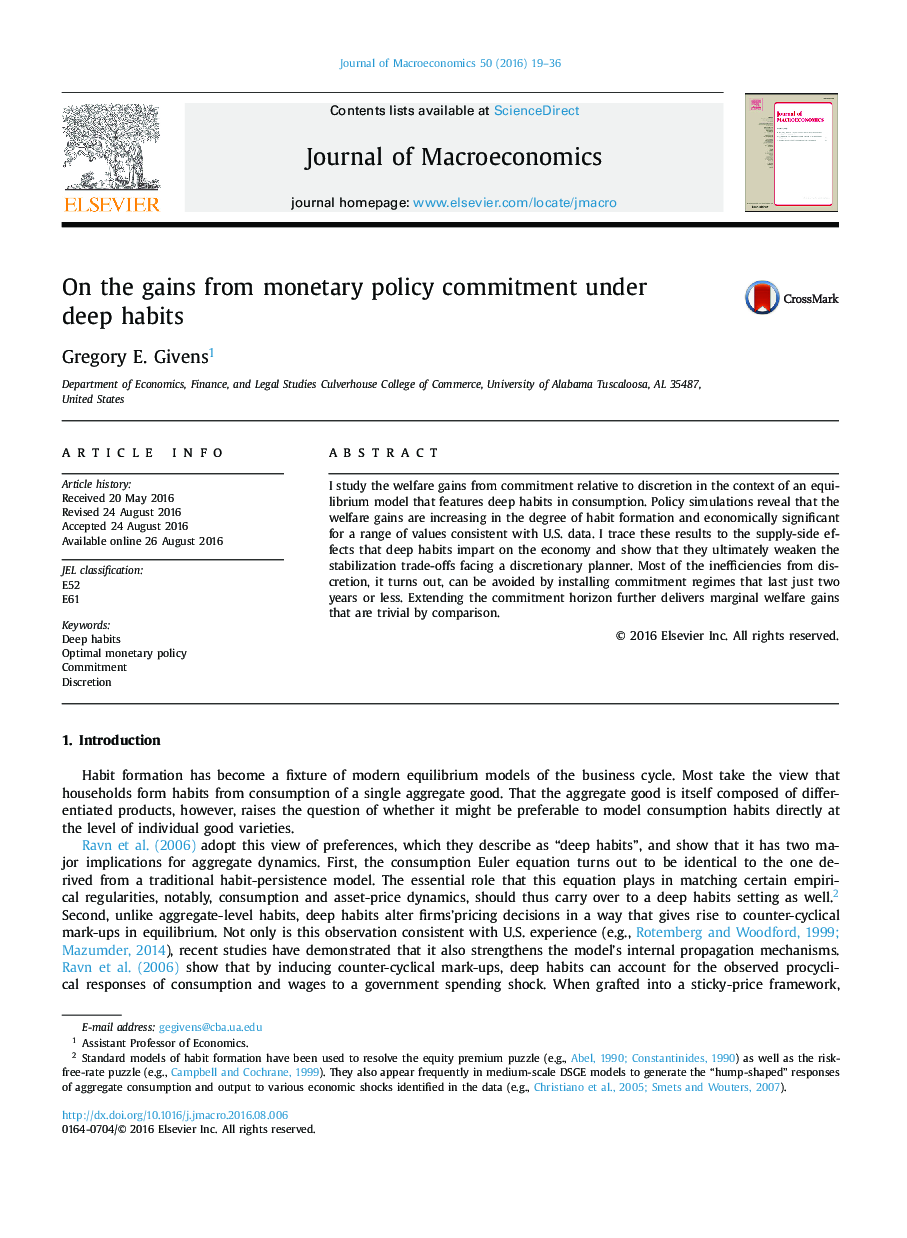| Article ID | Journal | Published Year | Pages | File Type |
|---|---|---|---|---|
| 5101334 | Journal of Macroeconomics | 2016 | 18 Pages |
Abstract
I study the welfare gains from commitment relative to discretion in the context of an equilibrium model that features deep habits in consumption. Policy simulations reveal that the welfare gains are increasing in the degree of habit formation and economically significant for a range of values consistent with U.S. data. I trace these results to the supply-side effects that deep habits impart on the economy and show that they ultimately weaken the stabilization trade-offs facing a discretionary planner. Most of the inefficiencies from discretion, it turns out, can be avoided by installing commitment regimes that last just two years or less. Extending the commitment horizon further delivers marginal welfare gains that are trivial by comparison.
Related Topics
Social Sciences and Humanities
Economics, Econometrics and Finance
Economics and Econometrics
Authors
Gregory E. Givens,
